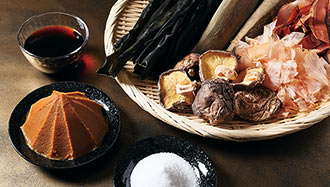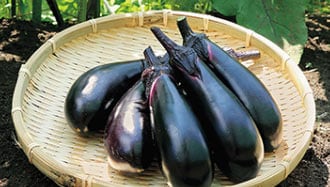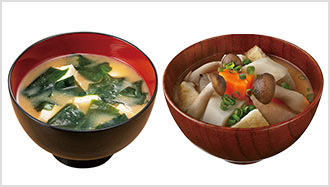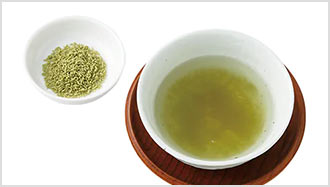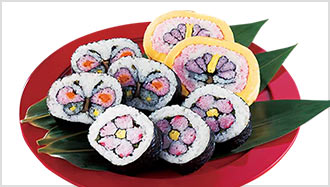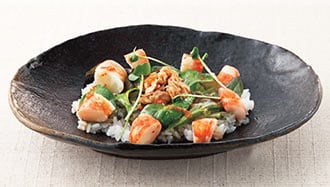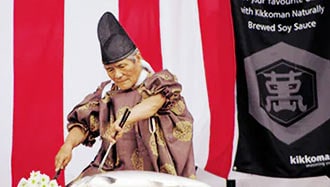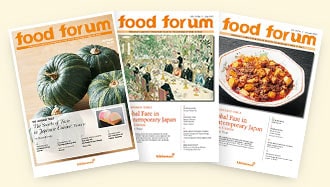
This March, the Japanese government filed formally to register “Washoku: Traditional Dietary Cultures of the Japanese” as an intangible cultural heritage, as stipulated by the United Nations Educational, Scientific and Cultural Organization (UNESCO) Convention for the Safeguarding of Intangible Cultural Heritage.
The category of intangible cultural heritage focuses on such aspects of culture as social customs, festivals, rituals and traditional craft techniques. Currently, 20 Japanese cultural traditions are on the UNESCO intangible heritage list, including the performing arts of Noh and Kabuki, the traditional Japanese music Gagaku, and Kyoto’s Gion Festival. Registered in the area of dietary culture are French gastronomy, the traditional diets of Mexico and the Mediterranean, and the ceremonial Keşkek tradition of Turkey.
Washoku is based on a spirit of respect for nature
Washoku is translated literally as “Japanese cuisine.” It is based on a spirit of respect for nature, and embodies the social custom of strengthening bonds among family and community by having a meal together in a setting where appreciation for nature is expressed.
Thanks to Japan’s four distinct seasons and diverse geography, washoku comprises a variety of fresh seasonal ingredients. Washoku dishes are made with very little animal fat, and include a wide range of foods that often revolve around fish, vegetables and herbs, served together with steamed rice, miso soup and pickled vegetables. Nutritionally well-balanced and healthy, washoku not only curbs obesity, it contributes to the longevity of the Japanese people.
Washoku is also recognized for its lovely presentation, which uses seasonal leaves, flowers, bamboo and other natural materials. Food is served on pottery, lacquer and other ware that not only complement the food, but which reflect the season.

Though there are many excellent aspects to washoku, in recent years Japan has seen irregular dietary habits and a loss of traditional food culture among its people, owing in part to globalization and socioeconomic changes. The government therefore enacted its Basic Act on Food Education in 2005, in order to pass down traditions of food culture in Japan. Since that time, elementary and junior high schools have received food education, and traditional local dishes have been served for school lunches. Regional communities are also making efforts to pass down their own regional dishes to future generations, such as foods served at festivals and ceremonies.
UNESCO will determine as early as this autumn whether washoku will be registered as an Intangible Cultural Heritage. In Japan, the efforts involved in registering with UNESCO have served to awaken a greater appreciation and awareness of the true cultural value of the country’s unique cuisine.




